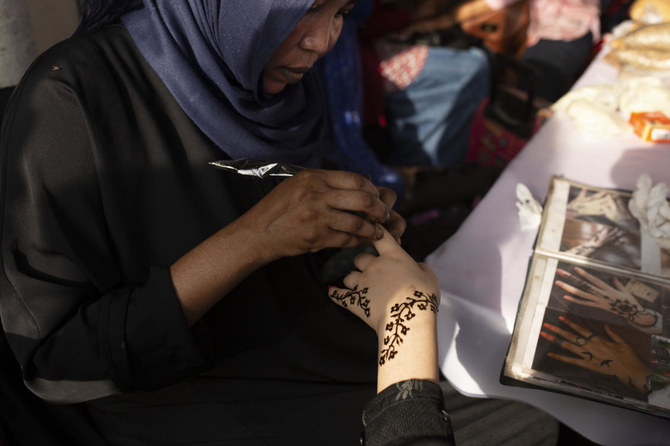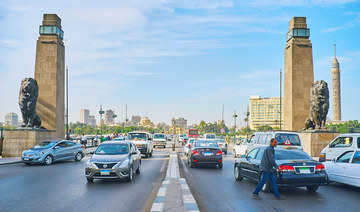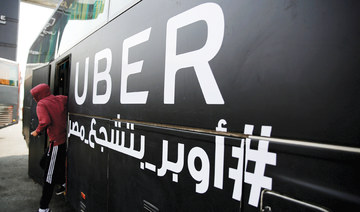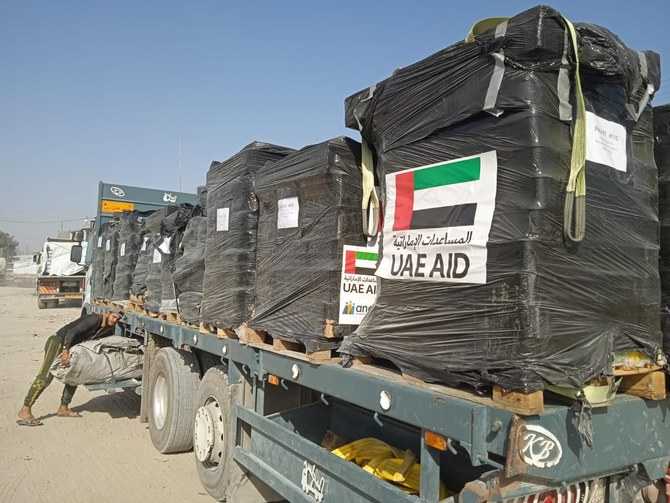CAIRO: Two Sudanese sisters, Seham and Ekhlas Bashir, were walking their children home from elementary school in a Cairo neighborhood when a group of Egyptian teenagers crowded around them. The boys taunted them, calling them “slave” and other slurs. Then they tried to rip off Ekhlas’ clothes.
An onlooker intervened, scolding the young harassers, and the sisters and their three children managed to escape. But they were shaken.
They had just arrived in Cairo months earlier, fleeing violence in their homeland. The harassment brought up traumatic memories of detention, torture and rape they said they experienced at the hands of militias in Sudan’s Nuba mountains.
“We have come here seeking safety,” said Ekhlas, recounting the incident that took place in November. “But the reality was very different.”
Egypt has for decades been a refuge for sub-Saharan African migrants trying to escape war or poverty. But the streets of Cairo, a metropolis of some 20 million, can bring new dangers in the form of racist harassment or even violence in ways that other significant migrant communities here, such as Libyans and Syrians, don’t face.
While other major centers of African migration like Europe have been wrestling with racist violence, Egypt has only made small starts toward addressing the issue.
The UN’s International Organization for Migration says Egypt hosts more than 6 million migrants, more than half of them from Sudan and South Sudan, where simmering conflicts continue to displace tens of thousands of people annually. For some, Egypt is a destination and a haven, the closest and easiest country for them to enter. For others, it is a point of transit before attempting the dangerous Mediterranean crossing to Europe.
In visits to several migrant communities throughout Cairo, at least two dozen sub-Saharan Africans, including four children, told The Associated Press that they have endured racist insults, sexual harassment or other abuses in the past three months.
The children said they have had rocks and trash thrown at them as they go to or from school. One woman from Ethiopia said neighbors pound on the windows of her family’s home, yelling “slaves” before disappearing into the night.
There are signs that Egypt is starting to recognize and censure racist crimes.
In November, there was a public outcry over a video that went viral showing three Egyptian teenagers bullying a schoolboy from South Sudan.
In the video, taken by mobile phone, the teenagers block the boy’s way, laughing and making fun of his appearance before trying to take his backpack. In the aftermath, police detained the teenagers for a day before their families reached a settlement with the family of the South Sudanese boy, John Manuth.
Weeks later, Egypt’s President Abdel-Fattah El-Sisi hosted Manuth at a youth forum in the Egyptian resort of Sharm el-Sheikh and made a rare high-level acknowledgement of the problem.
“They are our guests and negative treatment is not acceptable and not allowed,” El-Sisi told the audience.
In 2018, a court sentenced to seven years in prison a man who was known to harass refugees and who beat to death a South Sudanese teacher who had worked in a community-run school for refugees in Cairo.
Refugees and rights workers say the country still has a long way to go.
Reported cases of sexual and gender-based violence against migrants has increased in recent months, according to the IOM. Women and girls are the most effected, but so are vulnerable men and young boys, said Shirley De Leon, a project development officer at the organization. She said that could in part be because of Egypt’s economic strains — “challenges remain and are exacerbated by inflation, eroded income and high youth unemployment.”
Most migrants live in crowded poorer neighborhoods, where they form insular communities in small, packed apartment buildings. The idea is to protect families and vulnerable new arrivals from abuses.
Racism has roots in Egyptian society. For centuries, Egypt was colonized by Arab, Turkish and European imperial powers. Lighter skin was identified with the elite.
Darker-complexioned Egyptians and sub-Saharan Africans have been portrayed as doormen, waiters, and cleaners in films for decades. Some Egyptians still unabashedly address people by their skin color, calling them “black,” “dark,” or “chocolate.” Historically, many have preferred to think of themselves as Arab, rather than African.
Attia Essawi, an expert on African affairs at Cairo’s Al-Ahram Center for Political and Strategic Studies, says it will take a lot to break some societal beliefs.
“Authorities should be decisive, with more severe measures against racism and bullying,” he said.
But for many, reporting a crime is not an option.
Two South Sudanese women, who work as part-time house cleaners, told the AP they had been sexually assaulted by their employers. Neither of them reported the allegations to police, as one of them has not finalized her documents as a migrant in Egypt and the other feared reprisals from her attacker. For the same reasons, they spoke on condition of anonymity.
Now, they and others say they make sure to be home by nightfall, and only go out in groups.
El-Sisi has said in the past that his country doesn’t need camps for refugees, because it is welcoming and absorbs them so readily. Many sub-Saharan African migrants enter the country legally but overstay visas. Enforcement on those who stay illegally is lax, and a large number of them work in the huge informal economy as street vendors and house cleaners.
In a café frequented by migrants in a central Cairo neighborhood, Ethiopian refugee Ahmed el-Athiopi says that he came to the city five years ago to escape repression at home. He believes the only reason he has been able to keep a job is because he makes half that of an Egyptian.
For now, though, he says Cairo remains his best available option.
“I hope things get better in the future. Here is much better than in my home country as there is likely a zero chance to leave for Europe,” he said.



























